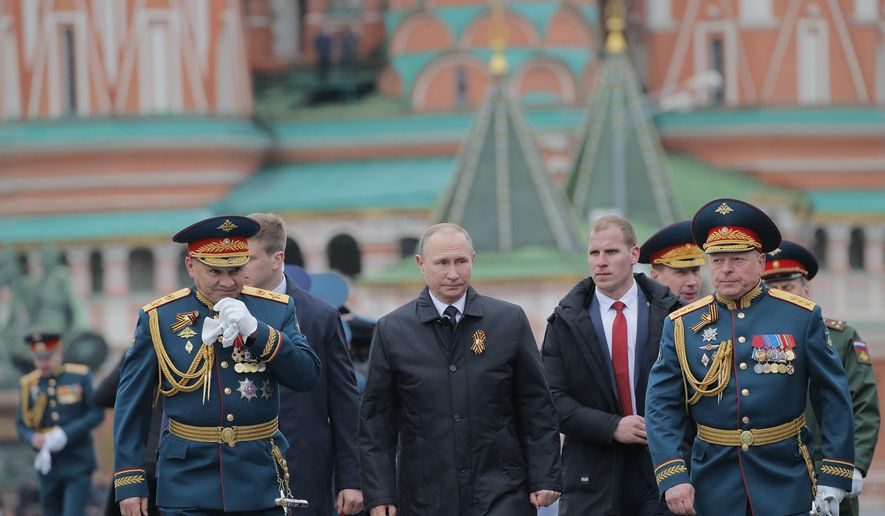Russian President Vladimir Putin on Thursday declared that Moscow will begin producing missiles that were previously prohibited under the Cold War-era nuclear weapons ban that was repudiated by President Trump earlier this year.
In a speech at the Eastern Economic Forum in Vladivostok, Russia, Mr. Putin said that although the country would move forward with plans for the shorter-range, “tactical” nuclear weapons, Moscow would not deploy them unless the U.S. made the first move.
“We said outright that we will not deploy anything after the Americans tested such a missile,” Mr. Putin said.
“We will make such missiles, of course, but we will not deploy them in the regions where no ground-based missile systems of this class manufactured by the United States have emerged,” he added.
The landmark Intermediate-Range Nuclear Forces (INF) Treaty officially ended on August 1, six months after the U.S. announced its intent to withdraw following repeated complaints dating back to the Obama administration that Moscow was cheating on the deal.
The INF agreement prohibited the U.S. and the Soviet Union from developing “tactical” missiles with a range of between 310 and 3,400 miles — specific restrictions meant to reduce the chances of the two sides launching attacks from European bases across the Cold War divide between the two blocs.
With the formal expiration of the Regan-era pact, missile systems that had been outlawed since 1987 will suddenly became legal under international law, sparking new fears of an arms race at a time when hypersonic missile technology makes such weapons more dangerous than ever.
In his speech, Mr. Putin claimed he had encouraged the U.S. not to spark a new arms race between the two nations, Reuters reported, but he said the U.S. never responded.
The U.S. has previously stated it intends to station intermediate-range missiles in the Asia-Pacific countries in the wake of the treaty’s fallout, sparking concerns that the weapons could reach Russian territory.
Russia is “not happy” about the move, Mr. Putin said, calling it “is a cause for concern.”
• Lauren Toms can be reached at lmeier@washingtontimes.com.




Please read our comment policy before commenting.